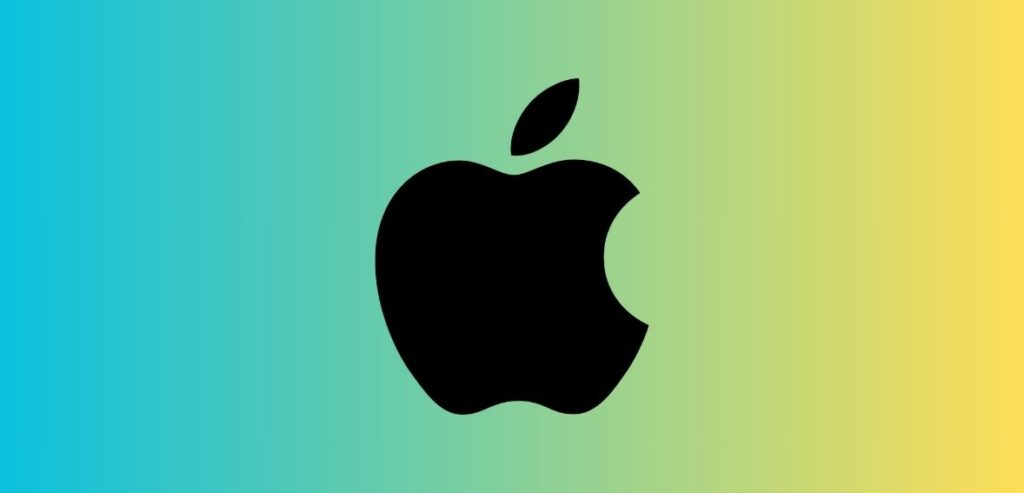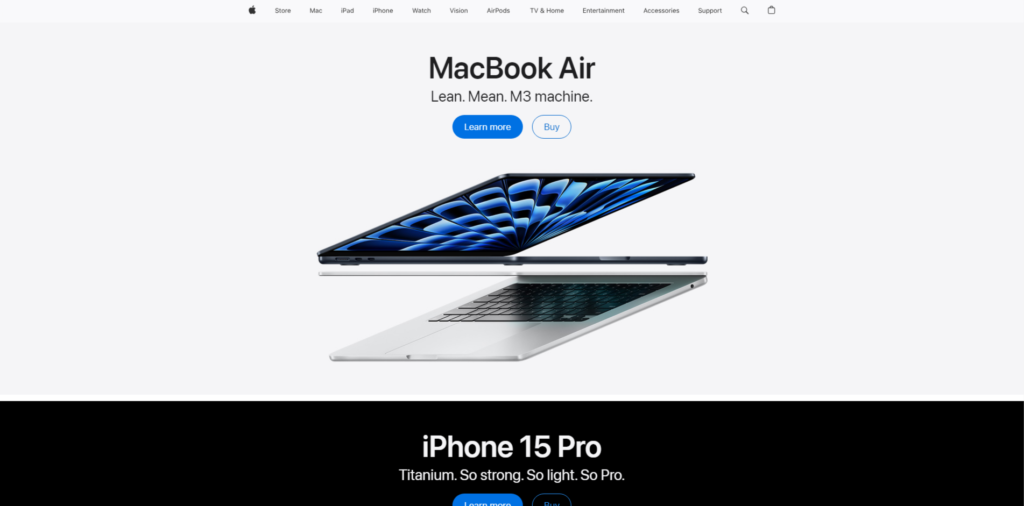Big corporations like Facebook, Google, TikTok, and Apple were largely able to avoid government oversight for many years, trying to create monopolies in the industries. However, looking at the recent shifts, this has changed drastically. In a new shift, the US Department of Justice DOJ is suing Apple Inc, alleging that Apple Pay inhibits competition and violates antitrust laws by concealing rivals of Apple Pay, such as digital wallets, by limiting their functionalities and features. The DOJ claims that Apple’s grip on tap-to-pay transactions is a step towards stopping the innovation and competition altogether, further solidifying its monopoly in an already dominated market.
Apple Pay, the leading target here, is accused of creating dominance of Apple Wallet by limiting cross-platform digital wallets. The fees imposed by Apple on Apple Pay transactions have also sparked significant debate, leading the DOJ to take the example of Samsung and Google payment app developers, who do not levy fees on any transaction.
Key Takeaways
- The US Department of Justice is taking legal action against Apple, alleging that the company’s control over Apple Pay is stifling competition and innovation in the digital payment market.
- The DOJ asserts that Apple’s dominance in tap-to-pay transactions, particularly through Apple Pay, restricts the functionalities of rival digital wallets and solidifies Apple’s monopoly in the market.
- Apple’s imposition of fees on Apple Pay transactions, while other major players like Samsung and Google do not charge such fees, has sparked significant debate and is a focal point in the DOJ’s case against the tech giant.
- The DOJ contends that Apple’s monopoly in the smartphone market creates barriers for other companies seeking to develop apps, including digital wallets, by limiting access to iPhone users and hindering economic viability.
DOJ Is Suing Apple for Alleged Monopolistic Practices

The United States has initiated significant legal action against Apple, alleging that the technology behemoth has a monopolistic approach to the industry and has stifled competition. In its antitrust complaint, the DOJ targets its use of Apple Pay to hinder competition and rake in billions of dollars yearly by using its market dominance in mobile devices to restrict rival payment app competition and charge card issuers to increase its earnings.
Government regulators have increased their scrutiny of Apple in recent years due to its App Store restrictions.
The DOJ claims that Apple has blocked banks and other financial institutions from using its tap-to-pay technology and curbed the integration of iPhones with rival smartwatches. As a result, Apple has allegedly been making billions of dollars in fees from processing Apple Pay transactions.
After a nearly two-year investigation in 2020, preliminary findings by European regulators indicated that Apple Pay abused the company’s dominant position in the tap-to-pay app and mobile wallet market. In January this year, seemingly mindful of other impending regulatory battles, Apple offered concessions. It promised to make its NFC and associated technology available to third parties so they could create tap-to-pay services compatible with Apple devices, dodging the need for Apple Pay if a user wants to. The proposal is still under evaluation.
Interestingly, in the 88-page complaint filed by the US Department of Justice, the Apple Pay case was the only European activity mentioned, despite Apple facing antitrust battles in Europe. Recently, the European Union fined Apple €1.8 billion ($1.95 billion) for violating antitrust regulations in music streaming. PayPal, a major player in the digital payment market, played an important role in the initially filed European Union complaint against Apple Pay’s monopoly.

Apple charges banks a standard 0.15% fee for every Apple Pay transaction. According to recent numbers, the potential “profit” is anticipated to amount to over $4 billion in 2023, doubling the YOY figure of $1.9 billion in 2022.
Although these amounts may seem relatively small for a company that generated around $383.29 billion in revenue in 2023, the company’s main strategy is based on the idea that digital payments will become increasingly important in people’s daily lives. The DOJ acknowledges Apple’s anticipation. As stated in the DOJ’s lawsuit, this belief emphasizes the significance of payments inside the iPhone ecosystem, iPhone ownership, and Apple’s place in the market.
The DOJ asserts that Apple’s monopoly in the smartphone market poses a barrier to the economic viability of companies seeking to develop apps, including digital wallets. Due to Apple’s dominance, these companies cannot access iPhone users.
Understanding the Viewpoint of DOJ: How Apple is Creating a Boundary for Other Digital Wallets

Apple’s grip on digital wallet creation and its deployment stems from its control over API access, both technically and contractually. This prevents third-party developers from introducing their wallet apps with tap-to-pay features on the iPhone.
This control enables Apple to dictate how iPhone users conduct tap-to-pay transactions. Furthermore, it blocks users from experiencing third-party wallets’ potential benefits and innovations, including consolidating various credentials, cards, tickets, and even car keys in one place. Without such restrictive practices by Apple, digital wallets that work across different platforms could offer functionalities like managing subscriptions and making in-app purchases. Apple’s discouragement of these wallets and related super apps solidifies its ecosystem since the Apple Wallet is exclusive to iPhone users.
Choosing a different smartphone brand would require consumers to abandon the convenience of a familiar app, necessitating the setup of a new digital wallet and possibly losing certain credentials and personal data stored in the Apple Wallet. A digital wallet compatible across different platforms would simplify the transition from an iPhone to another smartphone brand.
Given that many users already utilize apps from their preferred banks or financial institutions, if these entities were to offer digital wallets, it would open up access to new applications and technologies without forcing users to share their private financial information with extra third parties, which also means the same for Apple itself. Additionally, the 0.15% fee imposed by Apple represents a significant, recurring cost for issuing banks. This expense diminishes the resources banks might allocate towards developing new features and benefits for smartphone users.
About DOJ

Image source
The Department of Justice (DOJ) of the United States serves as the nation’s federal executive department, primarily responsible for law enforcement and the administration of justice within the country. It operates similarly to ministries of justice or interior in other nations.
The core objectives of the DOJ are to uphold federal laws, protect the interests of the United States, and guard against any threats to public safety. Directed by the US Attorney General, this department consists of over 40 distinct entities and employs upwards of 115,000 individuals. Its central offices are in the Robert F. Kennedy Building in Washington, D.C. The DOJ also operates numerous field offices throughout every US state and territory and in over 50 foreign countries.
About Apple Inc.

Image source
Apple Inc. (Apple) creates, manufactures, and sells smartphones, wearables, computers, and tablets. The company also offers software, accessories, and digital content. Its lineup includes iPhone, Mac, iPad, Apple Watch, iPod, and Apple TV. Apple provides services like advertising, payments, cloud storage, and various software applications such as macOS, iOS, watchOS, iPadOS, AppleCare, iCloud, and Apple Pay.
Apple distributes digital content through the App Store, Apple News+, Apple Arcade, Apple Card, Apple Fitness+, Apple Music, and Apple TV+. Its headquarters are in California, USA, and it operates globally across the Americas, the Middle East, Europe, Asia-Pacific, and Africa.
Conclusion
In a significant development, the US Department of Justice has taken legal action against Apple, alleging monopolistic practices in the digital payment market. The DOJ’s complaint targets Apple’s control over Apple Pay, accusing the tech giant of stifling competition and innovation. This move underscores growing concerns about big corporations’ dominance, with Apple facing scrutiny over its imposition of transaction fees and restrictions on rival digital wallets.
The outcome of this legal battle could have far-reaching implications for competition and consumer choice in the digital payment landscape, highlighting the importance of regulatory oversight in safeguarding fair markets.

